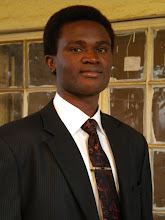“Since they thought it foolish to acknowledge God, he abandoned them to their foolish thinking and let them do things that should never be done. Their lives become full of every kind of wickedness, sin, greed, hate, envy, murder, quarreling, deception, malicious behavior and gossip” (Romans 1:28-29 NLT).
Though true philosophy is crafted out of theology, and philosophers of note had turned to theological foundations in God’s special revelation (Holy Bible) for credible conclusions about life, versions of postmodernism philosophies have taken on different foundations in which the God-factor seems to disappear in man’s consciousness, and this is greatly working against man. Individualism and self-actualization make men to look within themselves and think they don’t have a need for God; people think that they can get along on their own. Men achieve financial dreams and are addressed as self-made millionaires. Sweet community life disappears, and city dwellers aren’t caring so much as to know a next-door neighbor; only workplaces provide common grounds for social connection. Every now and then someone would say, “Never mind, it is my life!” Yet, people never really find meaning to their lives, and running their lives their own way rather opens up a vacuum of emptiness and meaninglessness in them.
Man, ultimately, will never find meaning without God because it was God’s breath which made man a living being. Therefore, man needs God, the source of his life, for him to be fulfilled just like he needs to ingest food grown from the ground to nourish his body which was equally formed from the ground1. No matter how one pretends to be self-sufficient, there will remain a longing in the heart: an innate craving which only God satisfies. It is God’s presence in a man’s life offering direction that brings the tranquility which drives out cognitive dissonance of meaninglessness.
A meaningless existence is the snare which postmodernism philosophies project to our age; it makes people think that there is no God, no absolute truth and no ultimate purpose for life. Therefore, men seek the universals (Holy Grail) of philosophy from the particulars: the big answers to the questions of life from the smaller things of life. This approach conceptualizes the universe as a cosmic cube believed to be all there was, all there is, and all there will ever be without a thing existing outside it. This hollow and deceptive philosophy is the reason why men look within themselves for answers, and search for meaning to life from things which they can make happen by themselves. Ultimately, this leads on to self-delusion, as people are never able to get a hold of what they think would give their lives a meaning. However, a careful look at creation gives an intriguing revelation of meaning, design, purpose and a flawless supernatural plan.
I was thrilled to read about the laws of physics and how they are extremely fine tuned to permit the existence of matter; for some of these physical laws, a change of as 1 part in 1037 (10,000,000,000,000,000,000,000,000,000,000,000,000) would prevent the universe from ever containing any kind of life2. This is certainly not a creation without purpose! In the book, Cosmos, Bios, and Theos, Arno Penzias, winner of Noble Prize in Physics, observed the delicate balance in creation, and he acknowledged a supernatural plan:
“Astrology leads us to a unique event, a universe which was created out of nothing, one with the very delicate balance needed to prove exactly the conditions required to permit life, and one which has an underlying (one might say ‘supernatural) plan.” (Quoted by Margenau, and R. A. Varhese, 1992:83)
Just as Penzias observed, Roger Penrose, British Mathematics Professor and author, equally came to a similar conclusion “I would say the universe has a purpose. It’s not there just somehow by chance3.”
The cosmic cube hypothesis is a costly assumption which refutes the existence of God who in his transcendence, is above and beyond creation. It is to Him we should look for real answers to life’s questions and not to ourselves or anything around us. For instance, man is completely inadequate to answer the question of what the truth is or the question of human dignity. Man by himself cannot determine the basis for truth, moral right and human dignity. In Professor Yusuf Turaki’s view of human foundation in an analysis of African religious believes and practices, he points to a realm beyond the natural for answers:
“The divine basis for human dignity is grounded in something that both precedes and transcends humanity itself, the state, the race and all social institutions. Human dignity cannot be rooted in the historical consciousness of man or in some sort of values forged out by man.” (Christianity & African Gods, 1993)
The world had never been as complex as we have it today, and it seems like a foolhardy attempt for anyone to think that he is adequate to be on his own without God4, or rely on his forged values as the right answers. We all need to look beyond us to the One who knows all things, who created all things, and who alone can proffer a credible foundation for moral truth, our cultural values and belief system. It’s He who can guide us safely through the mélange of life’s confusing alternatives of choices5, and He is delighted to do so.
________________________________________________
1 Genesis 2:7
2 www.godandscience.org/love/sld009.html . DOA, 15th December, 2009
3 Psalm 14:1
4Proverbs 3:5-7
5 Penrose, R. 1992. A Brief History of Time (feature film). Burbank, CA, Paramount Pictures Inc.
J-E-S-U-S… Salvation is to be found through him alone; in all the world there is no one else whom God has given who can save us (Act 4:12).
About Me
Visit my other blogs...
And to know the love of Christ, which passeth knowledge, that ye might be filled with all the fullness of God (Eph 3:19)
